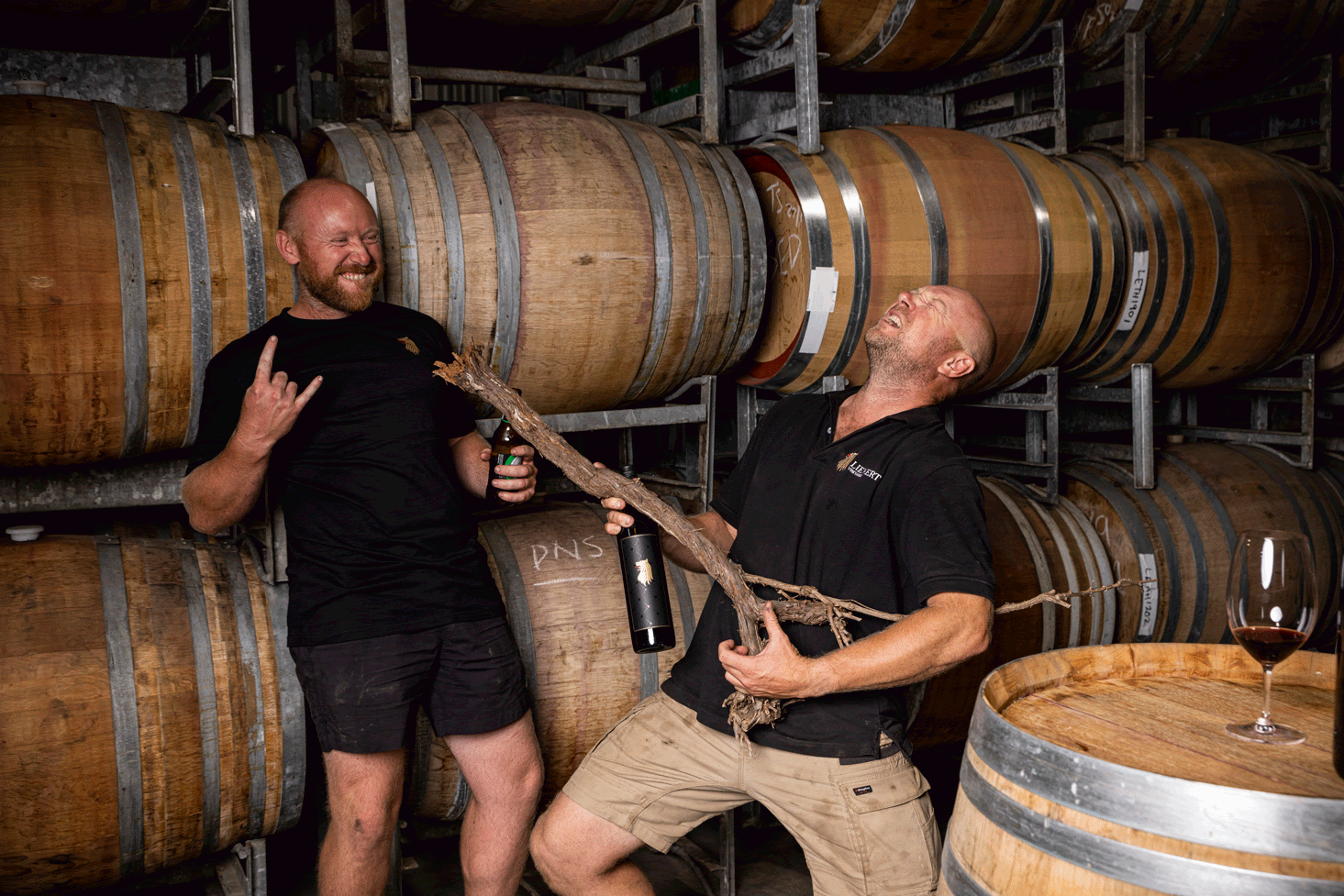For those that don’t know you - tell us about Lienert Vineyards?
Lienert Vineyards is a 100% family-owned Barossa Valley winemaking and viticulture operation. We are fifth generation Barossans but second generation grapegrowers and first generation winemakers. Lienert Vineyards was started by my brother John and I in 2016 with an aim to make elegant, balanced and finessed Barossa Valley wines.
Your home is very much in the Barossa Valley - what is it about the region that you think makes it so special?
We have the best pub in the world - maybe not the cleanest, but definitely the best.
What are you doing at Lienert to help your wines stand out?
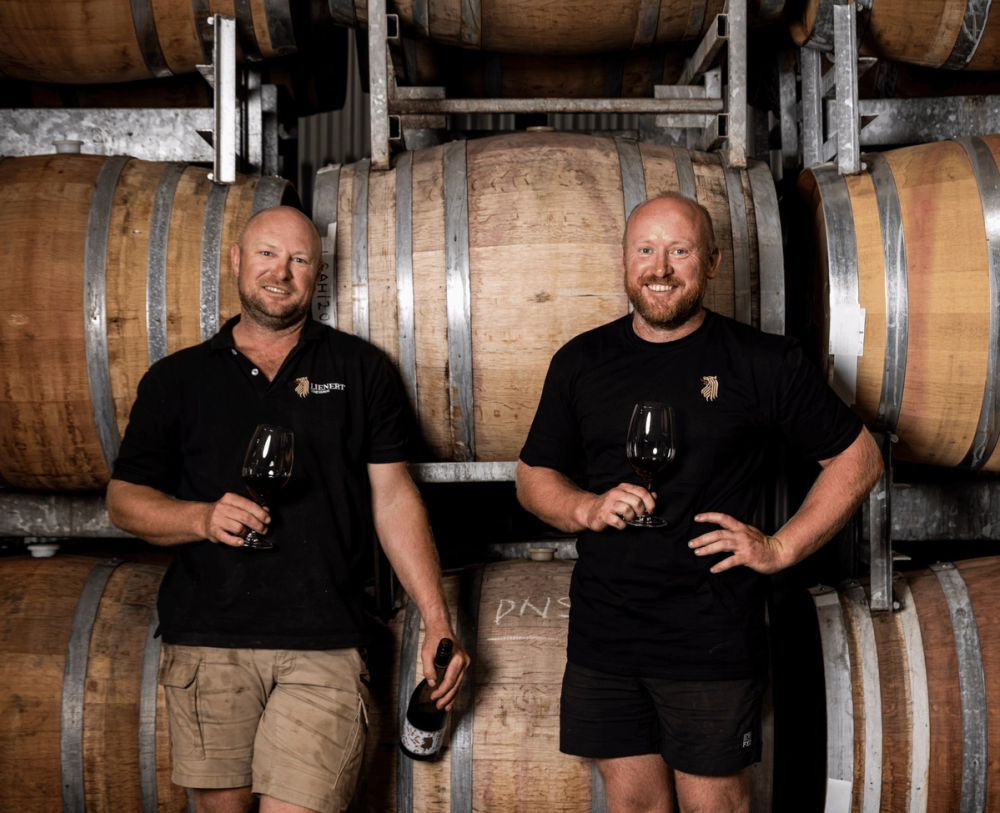
James and John Lienert want their down to earth personalities to shine through in their wines
Three main things - balanced healthy viticulture, fresh and elegant wine styles, and packaging that tells a fun story about growing up here in the valley.
You describe yourselves as New Kids on the block but you are also fifth generation producer - why do you say that?
Our family has been in the Barossa for around 170 years now, but we came from a farming background - grain and livestock, most notably pig farming. This affords us an excellent opportunity to not make wine as our parents did or grandparents did.
It means we didn't have a rule book to follow when it comes to viticulture and oenology. We’ve have been able to develop our own style of wine without the hassle of sticking to traditional practices
Do you see yourdown to earth personalities as a key part of the Lienert offer - you make wines but you are also people you would want to have a beer with?
Well, there is a saying around here that goes: "You can't make good wine without beer". Maybe it's because we don't take ourselves too seriously and like to have fun in and around what we do. We aren't steeped in tradition and therefore we don't have to present the image of an esteemed wine brand.
Wine and life are to be enjoyed and we like to practice what we preach, generally with a beer or two.
What styles of wine are you making and what changes have you made to your wines to help them appeal to more customers/ buyers?
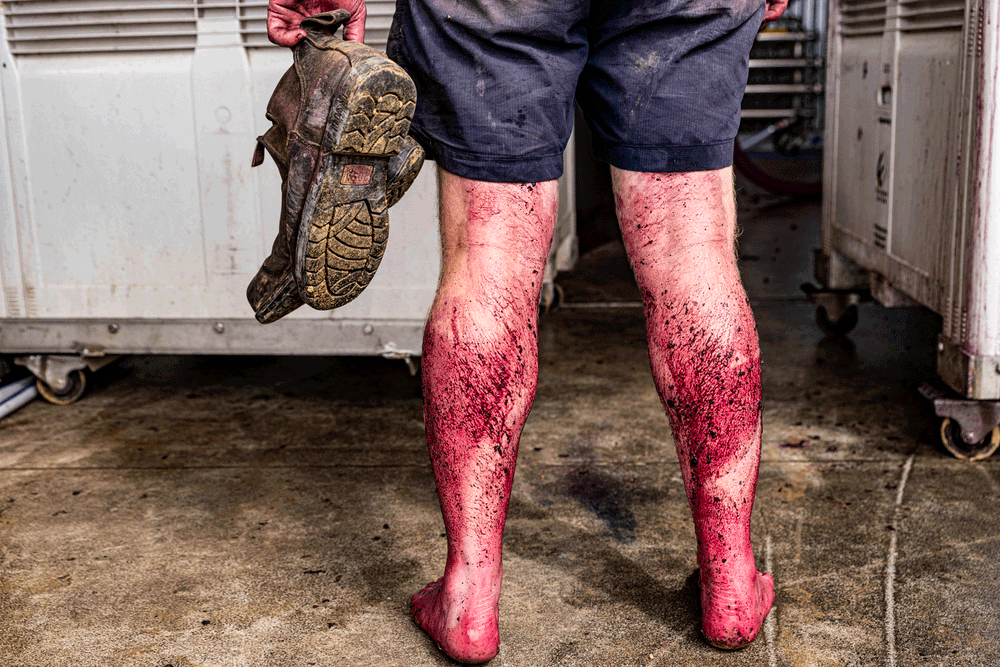
Picking and capturing the best fruit they can is what Lienert Vineyards is all about
Our wine style revolves around one thing only, and that is our fruit. We want the quality of the fruit to shine through in the glass - it’s the only ingredient in wine, after all. We’ve changed the style of viticulture over the years to reflect our own goals as we sell less fruit to the bigger wineries.
Parcels for our own use are managed to be as vibrant as possible without excessive ripeness and alcohol levels. We make sure we harvest the grapes at the optimal freshness.
You are working with new varieties and clonal selections - what specifically are you doing and why?
This is my favourite part of winemaking - experimentation, after all, is key to our ongoing pursuit to (unattainable) perfection. Our vineyard hosts 13 different varieties, with as many as 50 different clones across the varieties. We have 15 different types of Shiraz for example. We make each clone separately and study them as they mature in barrel. The reason for this is we only want the very best varieties and clones that gel with our soil and climate.
Australia’s production problems are well documented - what challenges do you face in the Barossa specifically and what are you doing to overcome them?
Wine is agriculture at its heart so we face the same problems any farmer will with rainfall and heat and cold being the major two. As the Monty Python guys famously said "every sperm is sacred” - we think every drop of water is sacred.
We mulch and compost all our vineyards to allow for maximum water retention, recycle our winery water for use in the vineyard, maintain healthy canopies in the vineyard in cases of hot summer days, and we harvest earlier and in the night to ensure fruit quality and freshness.
You are part of the Sustainable Wine Growing Australia - why is sustainability a key part of what you do and what are the main steps you are taking?
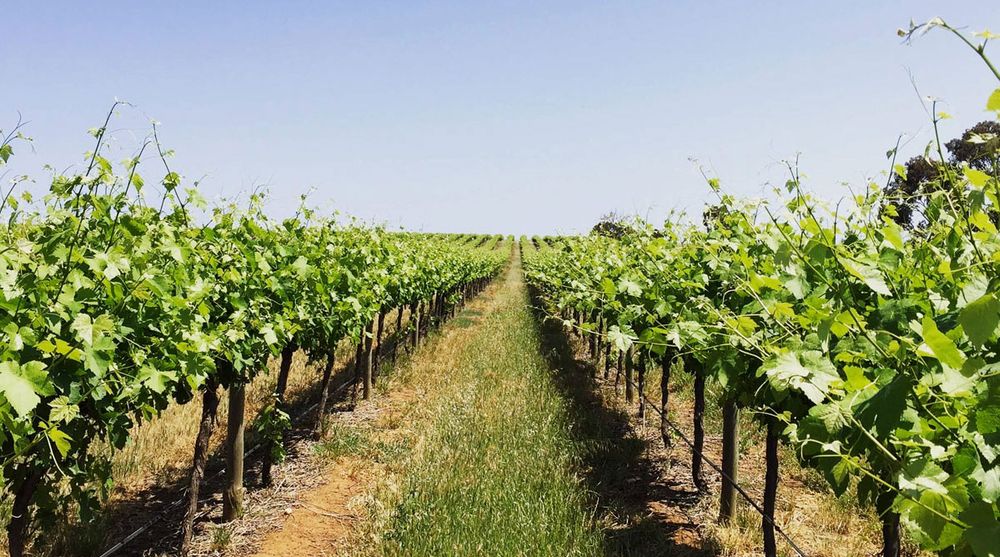
Sustainable and regenerative viticulture is a key part of what Lienert Vineyards is all about
We have always run our vineyards and winery sustainably, and the process of going through accreditation was to formalise our commitment to the Australian wine industry and the perception of our industry in other parts of the world
You are also involved in regenerative farming - why is that important to you?
John and I are lucky enough to have our own vineyards and therefore the soil underneath our feet has been there for our family for around 170 years. We would very much like it for our family to be here for another 170 plus years too. So we want to pass it on in a healthy or even better state than we found it.
In a nutshell, you can’t make good wine without good grapes, and you can’t grow good grapes without good soil.
You are part of Artisans of Barossa - what does that entail and why is it important for you to be part of that?
Artisans of Barossa is a group of seven small Barossa wineries who got together to deliver a collective wine experience in the valley. They co-host a wine room for tastings and sales, a restaurant highlighting local produce, and a local provedore. For a visitor it is an excellent way to see all the variance in wine styles in the Barossa and Eden Valley from the comfort of one cellar door.
It’s great for us as we’ve become part of an amazing group of well established artisanal wineries (all of whom I have greatly admired) and has helped us build our small brand into something much greater.
You say you want to fight back against “boring big company Australian wine” - what is it they do that you find boring?
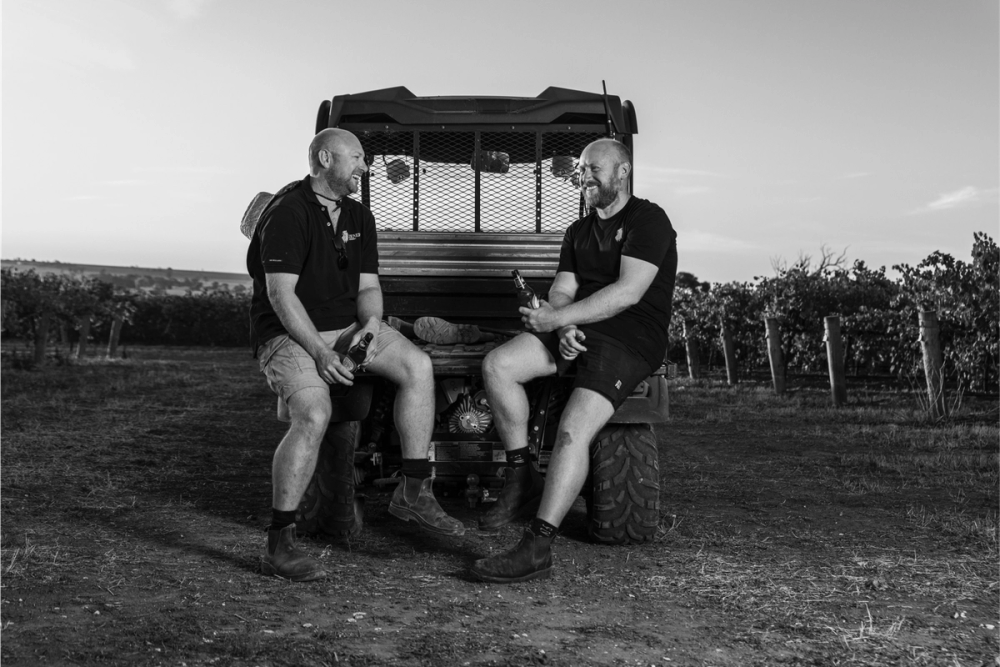
James and John Lienert are looking for a UK importer that is "down to earth, hardworking and quality focussed".
OK perhaps boring is a bit harsh.The great thing about those places is their consistency. Don’t get me wrong, I want our wine to look excellent every time, but consistency can sometimes be an enemy of experimentation and creativity.
Experimentation can create fantastic wines and absolute disasters - I really love that. Disasters are just as important because we get to learn more about viticulture and winemaking and as a result can push the overall quality higher and higher - assuming you don't fuck it up a second time around.
How are you helping to lead the fight back?
It really does revolve around experimentation with clones and varieties in order to pursue perfection in viticulture and winemaking. Storytelling through packaging and a general sense of fun, as wine snobbery isn't really our thing.
What are your export plans?
We have exported our wine to China, Singapore and the US. But we are looking to expand to the UK, Scandinavia, Canada, Japan, Korea, Vietnam.
You are also looking for a UK importer - what type of importer are you ideally looking for and what sort of size and ideal distribution model?
We are looking for someone we can work with long term, who shares a similar value to us - are down to earth but hardworking and quality focussed. Someone that has an open mind to the possibilities of Barossa wine and an appetite for future opportunities. As a bonus it would be good to be with someone who can get us a couple of tickets to the Ashes test at Lords!
What would your elevator pitch to them be?
Two brothers who don't take themselves too seriously, and bloody love wine and the land on which they work. Creating quality wines of elegance and restraint in the Barossa Valley, handcrafted exclusively from our own vineyards.
* You can find out more about Lienert Vineyards here.
* You can taste their wines at the Wine Australia and New Zealand Winegrowers tasting taking place on January 30 at the Royal Horticultural Halls in London. For more information and to register click here.
